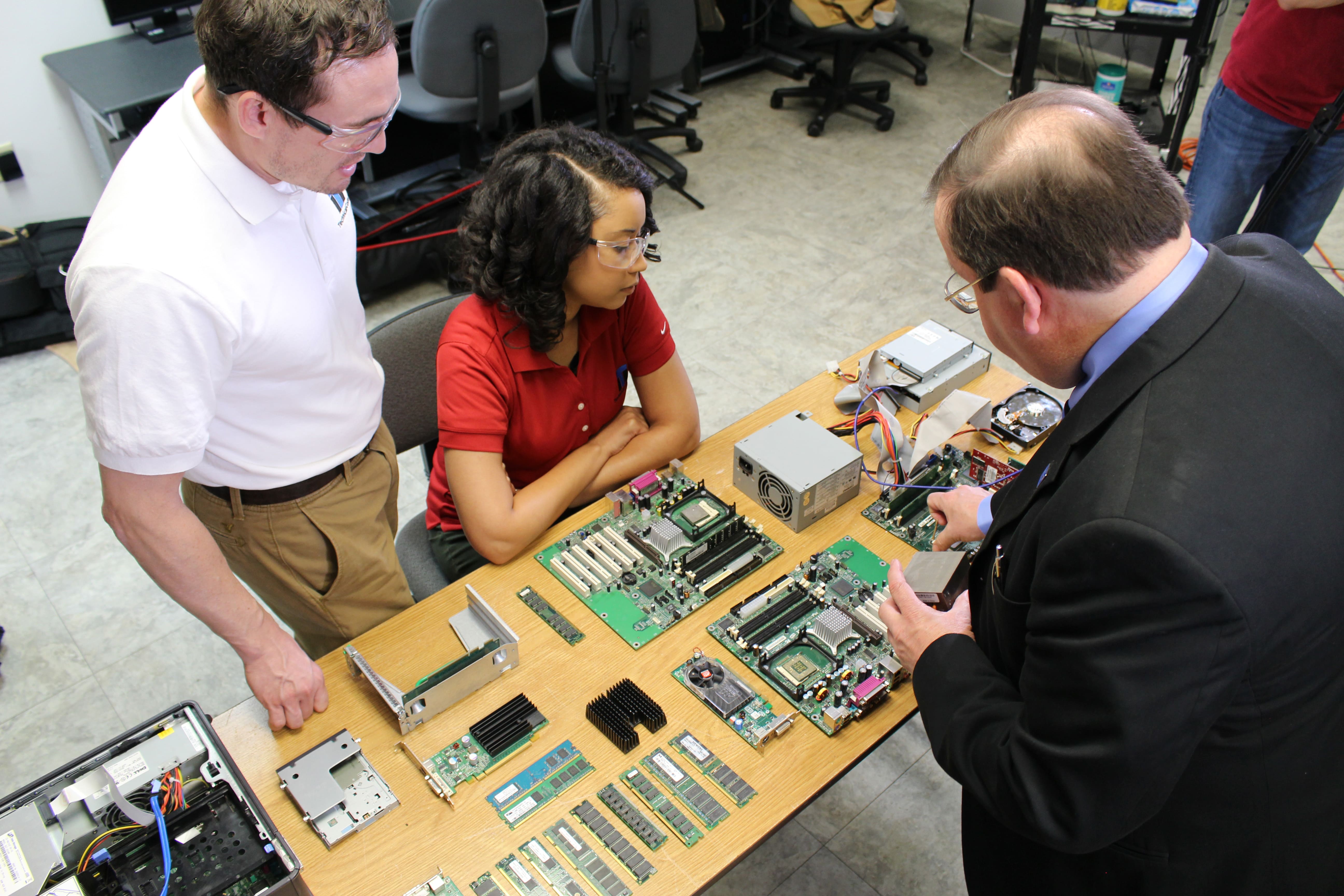Network Security is one of the most crucial elements of modern network maintenance and design. With the ever-present threat of data theft and malware or virus infection, firewalls have become essential in networks of all sizes. When you begin information technology training, you will likely have a number of questions about network and information security, and you may even be wondering about the differences between hardware and software firewalls.
What Does a Firewall Do?
During your information technology classes, you will learn that firewalls are elements within a computer network that are designed to limit the flow of incoming and outgoing traffic. Firewalls can limit this traffic based on the origin of the traffic, the port it is routing through, or even based on other criteria such as the amount of traffic that is being transferred, or the time of day when the communication is taking place.
Why do Software and Hardware Firewalls Exist
The most basic firewall will simply block or allow traffic, but as mentioned, there can be specific instructions that govern the flow of traffic for particular scenarios. For this reason, businesses and even home networks use a combination of hardware and software firewalls.
A hardware firewall will be one of the first elements between external traffic and an internal network. This is what could be considered the first line of defense. These firewalls are found in routers and they monitor traffic across the entire network. Suspicious data packets or packets that meet certain criteria will be blocked by the firewall. A hardware firewall is designed to protect against incoming packets, but will not typically scan outbound traffic.
In comparison, a software firewall looks at all of the traffic that is coming in or going out from an individual machine. While a hardware firewall won’t be configurable by the average user, a software firewall can be customized to their needs. Software firewalls can be used to limit malicious traffic, but also to stop unwanted or unnecessary traffic that could be broadcasting on a network. A software firewall can also prevent suspicious traffic from leaving a computer and infecting other machines on the network. Users can also configure firewalls if they don’t want certain applications to have access to a network or the internet, and system administrators may sometimes configure software firewalls to limit access on large corporate networks.
In short, both hardware and software firewalls are necessary, and they both work in conjunction to make networks more secure.

Information Technology Training Degrees Allow You to Understand Firewalls and Network Security
A basic software firewall can be relatively simple to understand, but knowing how to design and configure a hardware firewall on a network will require a deeper skillset. If the challenge of network design and security is something that interests you, then you will gain a lot of value from studying information technology. Not only will this allow you to understand firewalls, but you will also learn about computer networking and maintenance, programming, software operation, systems and software deployment, and even about hardware maintenance. A career in IT will be hugely rewarding, and information security specialists are currently in high demand.
According to data from the United States Department of Labor, the job outlook growth for information security analysts is currently sitting at 18%. Median pay is more than $90,000 per year, and as you increase your experience and skills, you would become a highly employable professional. An information technology degree could be your first step towards a career in information security, where you will have opportunities to work in companies of all sizes, including the world’s largest technology companies, and even in government departments like the NSA and DHS.
If you’re ready to begin your education and your journey towards your dream career, call us today for enrolment details, course costs, and further information about our IT degrees and other courses.
For more information about graduation rates, the median debt of students who completed the program, and other important information, please visit our website: https://iticollege.edu/disclosures/




